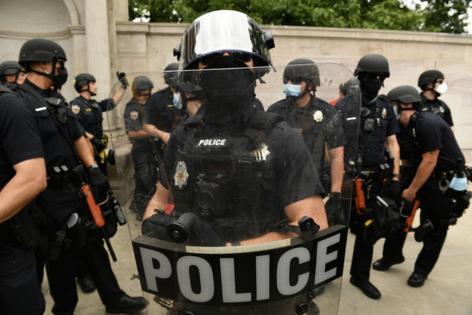Denver's police oversight office does too much work in secret, audit finds
Published in News & Features
DENVER — The office responsible for independent oversight of Denver’s law enforcement agencies is doing too much of its work in secret, a city audit found.
The Office of Independent Monitor, which provides civilian oversight for the Denver Police Department and Denver Sheriff Department, has not publicly reported its recommendations about law enforcement misconduct investigations and disciplinary actions for years, undermining the effectiveness of its oversight, city auditor Tim O’Brien found.
“Because the public doesn’t know what guidance the Monitor’s Office is giving to the police and sheriff departments, the public doesn’t know whether those departments are responding. There is no visible proof of accountability,” he said in a Thursday news release. “The lack of transparency is a disservice to law enforcement oversight.”
The independent monitor’s office is also not publicly reporting its reviews and evaluations of the two agencies’ policies and practices, and isn’t thoroughly tracking its work. The office lacks a formalized strategic plan, the audit found.
Former Denver Mayor John Hickenlooper and City Council members created the office in 2004 to provide independent oversight for the police and sheriff’s departments in the wake of two controversial police shootings. The monitor’s office reviews police and sheriff disciplinary cases and makes recommendations to the agencies about those cases that are aimed at improving discipline, policies and practices.
The police and sheriff’s departments do not have to follow the monitor’s recommendations. Because the monitor’s office has not publicly reported its recommendations, it is difficult to tell what sort of changes the office has pursued and whether public safety officials accepted or ignored the monitor’s recommendations, the audit found.
Denver’s ordinances require the Office of Independent Monitor to publicly report on disciplinary investigations and policy changes in its annual report, but also limit the office’s ability to do so because the materials are subject to deliberative process privilege, which allows information to be kept from the public if disclosing it would prevent honest and frank discussion within government.
“We found legal guidance from the City Attorney’s Office is affecting what the Monitor’s Office publicly reports in terms of its oversight of the Police and Sheriff Departments,” the audit states. “A significant portion of what city ordinance tells the Monitor’s Office to publicly report is protected by the deliberative process privilege — according to the City Attorney’s Office’s interpretation.”
The audit called for those conflicting mandates to be rectified and suggested the monitor’s office could hire an outside attorney who does not work for the city. Lisabeth Pérez Castle, the independent monitor, agreed to consider potential changes to the office’s approach to public reporting by the spring of 2026, according to responses she provided the auditor’s office.
The auditors also took issue with the monitor’s practice of sending a draft of its annual report to the city attorney, the mayor’s office and public safety officials for review and feedback before the report is published, finding the practice could undermine the monitor’s independence.
“The Monitor’s Office could greatly improve its functional and perceived independence by working to eliminate or minimize the influence of other city agencies in its public reporting,” the audit reads.
Pérez Castle agreed with all of the auditors’ recommendations — including that the office should create a formalized strategic plan — and committed to making changes over the next year. She did not immediately return a request for comment Monday.
©2025 MediaNews Group, Inc. Visit at denverpost.com. Distributed by Tribune Content Agency, LLC.







Comments